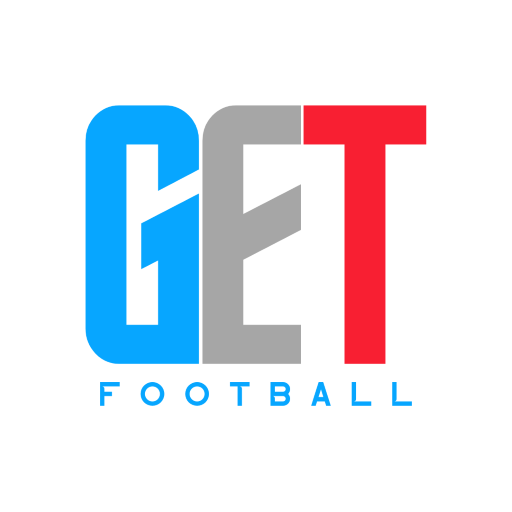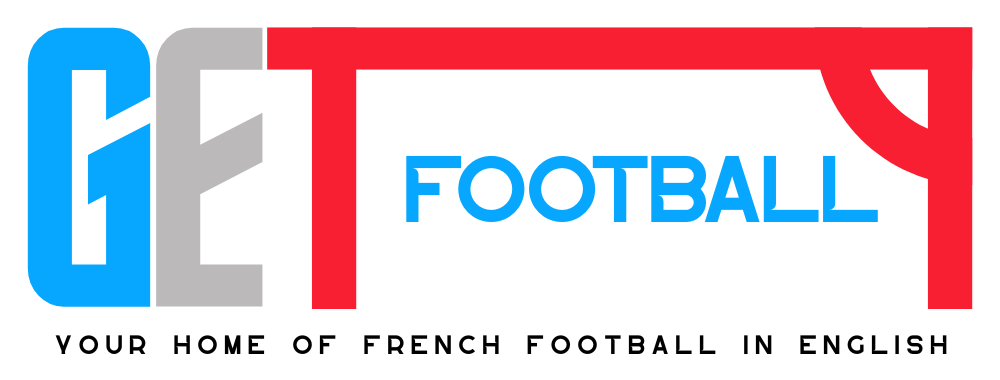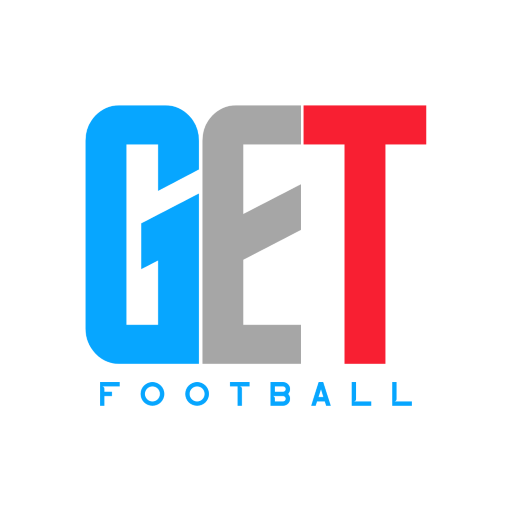In an exclusive interview with GFFN, MLS star Fafà Picault tells the story of a journey that saw him go to Europe as a 16-year-old, overcoming adversity, making the U.S. men’s national team, and playing with Kylian Mbappé as a child.
Before leaving for pre-season training with Nashville, the American winger had the time to take us back to where it all started for his “soccer” career, in Harlem, New York where his father first taught him the game. Then, at the age of 9, his family moved to Miami, where he played at the top clubs in the area. Whether by chance or destiny, it would turn out to be a move that would eventually set him up to live out his dream – to play football in Europe.
During the interview, the former Houston Dynamo MVP spoke at length about his tightknit family and father who trained him as a child. In fact, the Cagliari academy product comes from a long line of footballers. His father was a former footballer and his grandfather was a former Haiti national team player. However, instead of feeling pressure from the big shoes that were left for him to fill, Fafà relished in his family’s pastime.
“You want to keep it in the blood, but on top of everything it was never forced on me. It came from me wanting to do it. My dad was just there to push me and guide me and keep me on the right path. The beauty was we just shared the passion together genuinely and organically.”
You did what every kid growing up in the United States playing soccer wants to do by making it to Europe. What was that like and how did it happen?
“Things have changed. Back then it was a lot more difficult to get over to Europe at a young age. There were still a lot of stereotypes for American footballers. It was very hard. I had an opportunity. I was blessed by the Cagliari academy that started here by Massimo Cellino, the former president of Cagliari Calcio. He brought four of us on trial. We stayed there for a month and I ended up passing. They brought me in at 16 years old to play with the reserve team and that’s kind of where the adventure started.”
Did your parents go with you? What was the initial experience?
“The initial experience was interesting (laughs). My dad went with me for the first two weeks. My mom stayed back. At first, she was hesitant to move, but she made sure I finished high school online from abroad. It was a hectic move, but it was just great knowing my dad was going to be there for the first two weeks. But the moment he left I realized I was a man and I was on my own. It was time to grow up and be a man.”
What was the biggest difference between the United States vs Italy? Style-wise, level-wise?
“I think the hardest part of the transition, because we had a lot of great talent in Miami at the time, would have been just picking up the language as quickly as possible, adapting to the culture, and knowing I did not have access to all things I had in Miami or the States in general. A lot of off-field stuff that was probably more difficult. I picked it up pretty quickly, thank God.”
Really?
“Yeah, On the field I would probably say – especially then, but it’s probably still relevant today – is that Italian football is probably the most tactical and defensively structured football in the world. So it was very challenging to learn how to break defenses with my runs and find gaps of space and find where to go on the field to make it difficult for defenders.”
Sticking with Europe, you were one of the few American youth prospects in Europe. You went to Paris, tell us about how Paris shaped your game for the future and I hear you have a really cool story about someone we all know that you ran into while living in there.
“Actually, I was supposed to sign in Paris. This is before the Qatari group purchased the club. The foreign roster limit kept me from staying with the club and we looked for other clubs, but it was very difficult with the American passport. I spent almost a year in Bondy, in Paris, at my aunt’s house. ‘Neuf trois’ as we called it.
At the time there was Joe Kobo, who was my aunt’s neighbor and who was close friends with Kylian Mbappé. We played a lot of great streetball. Some of the best streetballers I have ever seen in my life. Joe and Kylian would come often as little kids just to sit and be around (watch the older kids/men playing). I didn’t even remember that Kylian was playing ball like that. Until I had seen him at Monaco. I saw a picture that Joe posted on Facebook and I spoke to him briefly and told him, ‘oh, you guys are doing good!’ Joe was playing at Caen at the time and I was just really happy for the both of them then a year later the kid exploded! Now he’s the Kylian we all talk about and know now, so I’m really happy for him.”
Wow, so you are in Bondy, playing pickup. You have young Kylian Mbappé on the sidelines and yelling up to your window for you guys to come down and play. Did you know then he would grow up to be what he is now?
“No, no clue at all. I had not even seen his games. We would finish playing and sometimes I would stay longer with the young guys because I didn’t have a lot to do at the time. Especially with Joe because he was my aunt’s neighbor. I had a really good relationship with him as a younger bro. They would come after and we would pass the ball and just take some shots. That was pretty much it. I never watched him play. I heard he played with Bondy at the time. I spent more time with Joe, but Kylian also because they were always together. Then he blew up and we were all happy for him.”
Do you think that time in Bondy / Paris playing streetball changed your game?
“Definitely, I grew up a big streetball fanatic. Whether it was soccer or basketball. I just love street style anything. I love what the streets do to sports. I like the edge it gives, the creativity and art that it brings to the game. So having the opportunity to be out there, even though it was a rough time for my career, and things weren’t falling the way they should’ve or I felt they should’ve, it was a great moment for me to perfect my street craft. It’s something I don’t get to use as much in the professional game, but if I get into tight spaces, I’m very comfortable just from streetball, Futsal and concrete ball.”
So Paris, Italy, Germany now the MLS. You’ve even played in other places besides that. Where do you feel like you had the best style or you just enjoyed the most?
“I would say they each brought something different to me. It’s tough to say where I think had the best football. I think Italian football at the time was the best league in Europe, if not, top 2. I learned a lot. I got to learn a lot from older guys like Diego López, Conti, Larrivey. I just had a lot of guys who were able to help me out with a lot of the tactics and different stuff so I would probably say there was my base of football, that has impacted me until today.”
A lot of people don’t realise the situation with the international squad spots. You almost have to prove that you’re twice as good as the next player to use one of those spots. Is that something you carry with you during the season?
“You definitely feel it. You feel the extra pressure. A lot has changed in the last 4 or 5 years. But in those times you felt that target on your back. If you didn’t perform it was ‘oh, this American,’ ‘he can’t play’ or whatever stereotype that came with the American player you had to suffer with. If you weren’t up to par or even at par. Even was not good enough. You had to be just a lot better and bring something different to the table to earn that respect. That’s why I feel like the older American players have a different chip on their shoulder, compared to the new ones. When you look at Dempsey, DaMarcus, Landon, Tim, and Brad – the list is kind of long and I don’t want to leave anyone out, but those guys really set the bar high for what one should strive for. It’s a new generation, and soccer has changed but back then you went out with a bullseye on your back.”
After making it all the way to the table to sign with PSG just to be denied by the international roster limit, Fafà decided to regroup in the States where he wouldn’t run into that issue. As one of the top U.S. youth prospects at that time in Europe, that proved to be difficult.
“I came back to the NASL. At the time, it was a tough league to play in, and barely making any money. It was rough to go from a top U20 prospect for not only the national team but in Europe to come back and you are kind of making peanuts. You lose all that recognition, and all the expectations everyone had for me. It was kind of rough because there were a lot of things that were outside of my control that happened behind closed doors. So it was a tough pill to swallow. It was the least amount I’ve ever made in my life by far but at the same time one of the best seasons I’ve had in terms of comradery and building my confidence and eventually getting myself back to Europe.”
If you were to pick one thing, one determining factor that helped you reach where you are, what would you say that was?
“I’d say just knowing what it’s like to have hit that bottom and knowing I didn’t want to be there again. As much as I enjoyed it, I said ‘ok, I really need to figure out how to stay up. Even if it’s out of my control I need to find a way to get control of it. Trust God in everything I was doing, but at the same time, I have to figure out how can put in, not just on-field work but doing everything possible correctly to stay in the game as long as possible.”
The MLS winger would get his chance to go back to Europe with Sparta Prague via a connection he made with former Slovakia National team goalkeeper – Kamil Čontofalský. From there, he would sign with German side St. Pauli where his career took off. During that time, he received his first call-up to the U.S. men’s national team.
In 2017, the striker signed for the Philadelphia Union where he would make 89 appearances and scored 22 goals and 12 assists. Since arriving in the MLS, he has been Huston’s team MVP, Player of the year, and scored over 40 goals. Even with an already accomplished resume, Fafà is still hungry for more.
You just signed with Nashville. What keeps you motivated and what are your thoughts on signing with the team?
“My biggest goals with Nashville and what has kept me motivated is pride and respect for the game. I have loved this game since I could walk. Since I could breathe. It’s my first love. I don’t ever want to leave a club saying I didn’t do everything to make this club better. As great as I did at Houston, we didn’t go to playoffs for two years and that hurt me because I knew I gave it my all. It’s a full team so you can’t put all the blame on yourself, but you still carry a little regret and pain in you because you wanted more out of it. But I do feel that at every club that I’ve been at, no one can say I didn’t perform. If we are objective about it, no one can say I didn’t produce what I needed to produce or overachieve. Now, going to Nashville as a seasoned vet, I just want to top everything I’ve already done in this league and do even better than anywhere I’ve been. I’m very confident in myself that I can do that. It’s important now to get to work and get with my team.”
What should their fans know about you?
Playing against them (Nashville), there are some things they may already know (laughs). I’m gritty, I’m in your face, but I’m a relaxed dude. But I want to win. I’m going to do everything in my power to help this team be a better team. I’m coming into a good team already. They have made it to the playoffs three years straight as a franchise. Now, my job as a player coming in is to bring the team to another level along with some of the other guys and give everything I can to this club and this city. I’m really excited to be there. I could not be more excited to be joining Nashville.
With all of the talent Miami has had over the years, Fafà Picault is one of the only players to have reached European success and longevity in the MLS. After traveling all over the world and picking up little pieces from the football cultures from everywhere he has played, he enters his prime as a truly complete player. Fafà’s story was one of relentless hard work, faith, and family. With those pillars, he starts his journey with Nashville in search of the one goal he has not yet reached, an MLS title.
GFFN | Tony DesRois










